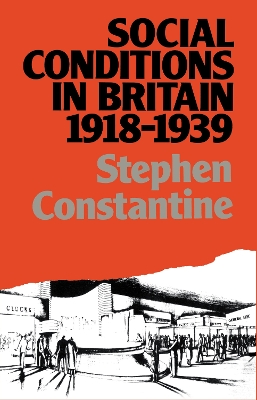Lancaster Pamphlets
2 total works
One popular image of the interwar years portrays the period as a time of depression, deprivation and decay. However, much recent work has tended to take, on balance, a more optimistic view of social conditions. In this pamphlet Dr Constantine examines the basis for such conclusions by reviewing the changing employment porspects for manual and non-manual workers, levels of family expenditure on food, consumer goods and leisure activities, the extent and causes of poverty, the quality of interwar housing and the records of the nation's health. The effects on living standards of demographic change, economic growth, wage levels and government policies are considered. The period is seen as a time of transition, witnessing significant shifts away from older patterns of employment and social conditions towards those characteristic of an affulent mass consumer society. However, there were casualties from this process of accelerated change, and class and regional inequalities remained.
An understanding of Lloyd George's long and prominent political career elucidates many of the key issues in modern British history. Seen by some as `the man who won the war', he was central to the political activity which appeared to secure the pre-eminence of the Liberal party before the First World War, but which later contributed to its reduction in status. His initiatives in government, particularly in the area of social reform, helped to redefine the relationship between the state and society and laid the basis for the Welfare State.
This pamphlet examines these developments with reference to Lloyd George's Welsh background, his personal ambitions and his response to the challenges posed to Liberal society by radical conservatism and socialism. It draws on the wealth of material that is now available and provides a concise, interpretive study.
This pamphlet examines these developments with reference to Lloyd George's Welsh background, his personal ambitions and his response to the challenges posed to Liberal society by radical conservatism and socialism. It draws on the wealth of material that is now available and provides a concise, interpretive study.

